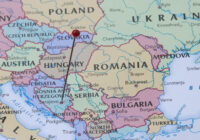As the largest atrocity in Europe since World War II, memories of the Srebrenica massacre are still fresh.
Twenty years have passed since the Srebrenica massacre, when over 8,300 Muslims were murdered over four days by forces led by General Ratko Mladić. The former Bosnian Serb military leader, who is on trial at The Hague for war crimes, once stated that “the time has come to take revenge on the Muslims.”
At the start of the Bosnian War, which took place between 1992-95, Srebrenica was declared a “safe area.” But the international community failed to prevent Bosnian Serb forces from carrying out the bloodbath.
To this day, the debate over whether to call the Srebrenica massacre a “genocide” continues. But one thing is clear: The victims—mostly men and boys—were systematically rounded up and murdered.
With the bodies dumped in mass graves, the victims’ families are still trying to identify their loved ones and give them a proper burial. As the largest atrocity in Europe since World War II, the memories are still fresh in the minds of everyday Bosnians.
The views expressed in this article are the author’s own and do not necessarily reflect Fair Observer’s editorial policy.
We bring you perspectives from around the world. Help us to inform and educate. Your donation is tax-deductible. Join over 400 people to become a donor or you could choose to be a sponsor.
Support Fair Observer
We rely on your support for our independence, diversity and quality.
For more than 10 years, Fair Observer has been free, fair and independent. No billionaire owns us, no advertisers control us. We are a reader-supported nonprofit. Unlike many other publications, we keep our content free for readers regardless of where they live or whether they can afford to pay. We have no paywalls and no ads.
In the post-truth era of fake news, echo chambers and filter bubbles, we publish a plurality of perspectives from around the world. Anyone can publish with us, but everyone goes through a rigorous editorial process. So, you get fact-checked, well-reasoned content instead of noise.
We publish 2,500+ voices from 90+ countries. We also conduct education and training programs
on subjects ranging from digital media and journalism to writing and critical thinking. This
doesn’t come cheap. Servers, editors, trainers and web developers cost
money.
Please consider supporting us on a regular basis as a recurring donor or a
sustaining member.
Will you support FO’s journalism?
We rely on your support for our independence, diversity and quality.






Comment